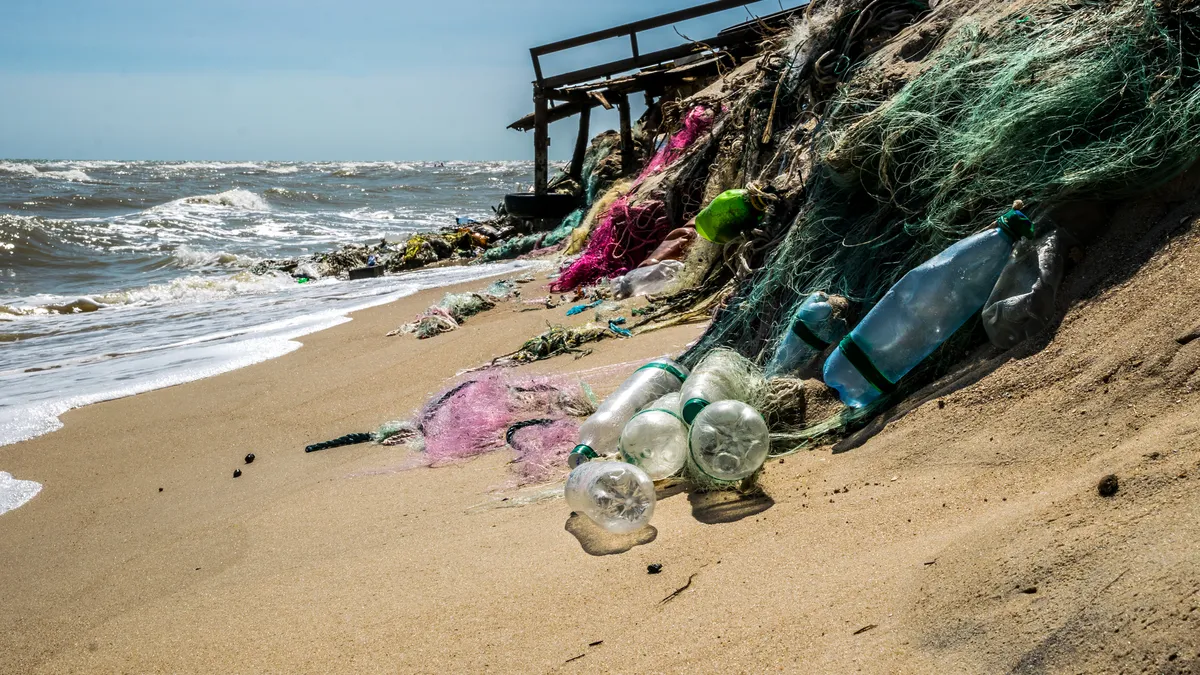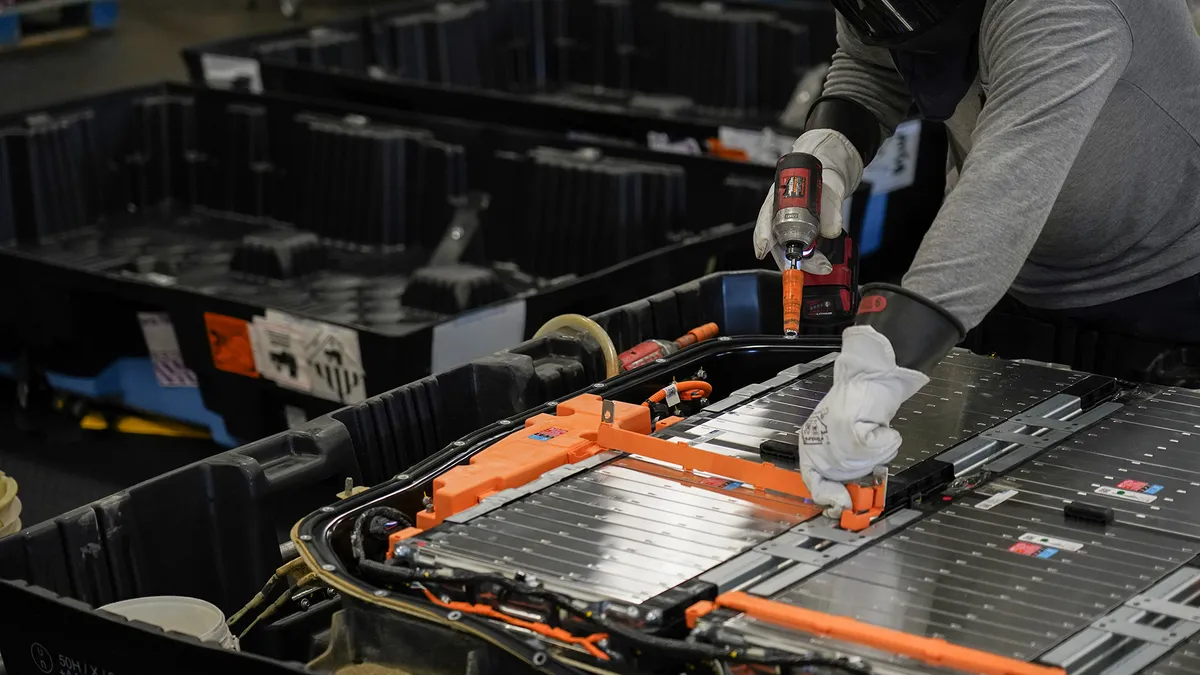Environmentalists and plastics industry representatives faced off during a U.S. Senate committee hearing on plastics Thursday. The two sides agreed that certain bottle bills and other legislation could help curb plastic pollution but continued to disagree over the role chemical recycling should play in managing plastics in the environment.
During the Environment and Public Works Committee hearing, which focused on the impact of plastic and reducing plastic waste, Plastics Industry Association CEO Matt Seaholm said the industry would be open to certain bottle bills, extended producer responsibility and recycled content laws “if crafted correctly.”
The position shows how the plastics industry has joined other major stakeholders, like the beverage industry, in slowly warming to such legislation over the years.
"There's no doubt that bottle bills work, bottle deposits work. We've seen it," Seaholm said. "Would the industry support a bottle bill, crafted correctly? I think it would certainly be open to that on a national scale."
Judith Enck, head of Beyond Plastics, said plastics industry support for such legislation could be very helpful, particularly for passing a national bottle bill. However, she cautioned that it’s all about “getting the details right.”
A group of bottle bill proponents have said they plan to launch a new federal bill for possible passage in 2023. It’s based partly on bottle bill provisions in the Break Free From Plastic Pollution Act introduced in 2021 by Democratic Sen. Jeff Merkley of Oregon.
Merkley, who chaired the hearing, urged stakeholders to work together to remedy rapidly accelerating plastic pollution issues. However, Congress has few days left to move forward some of the numerous recycling-related bills in the pipeline, and legislators who participated in the hearing didn’t provide clues as to the fate of such bills or what could be reintroduced in 2023.
Seaholm criticized the most recent plastics bill introduced in Congress, the Protecting Communities From Plastics Act, meant to cut plastics production in favor of reuse and refill strategies. The bill also would call for a temporary pause in permitting for certain facilities, a provision similar to one in Merkley’s Break Free bill. Seaholm said the bill would hurt manufacturing of medical devices and other essential plastic components. “I urge Congress to avoid stifling innovation and promising new technologies that are absolutely needed,” he said.
Enck agreed some plastics are needed, especially for medical devices and other necessary products, but she said the conversation should be centered on the pollution caused by single-use plastic that clogs waterways and landfills.
"I want to go on record by saying that there are some [needed] uses of plastic, but we don't see medical waste hanging from trees," she said. Vehicles with some plastic components are lighter and more efficient, but “I don't see car bumpers in my local park. I see a lot of single-use plastics. This is a climate change issue."
Policies that promote reusable packaging will be stronger and create longer-lasting environmental improvements than policies aimed at finding ways to recycle packaging that currently isn’t accepted in most curbside bins, Enck said.
Most types of plastic packaging are not recyclable, and aside from some recycling infrastructure for PET and HDPE, "plastic recycling is a failure," she said.
The debate about what to do with hard-to-recycle plastics also addressed the issue of chemical recycling, also known as advanced recycling. The ranking Republican committee member, Mississippi Sen. Roger Wicker, spoke in favor of the process. “Advanced recycling allows many previously unrecyclable plastics to be processed while also dealing with contamination issues. These advancements are important to keep in mind as we look at the future of plastics,” he said.
Eric Hartz, co-founder and president of chemical recycling company Nexus Circular, said chemical recycling — Hartz prefers the term “molecular recycling” — is a powerful way to convert previously unrecyclable plastics into new products, but misunderstandings about the process could hinder the technology’s growth. He said Nexus follows all necessary air and water permitting and its technology does not involve burning plastic. His company also is not interested in replacing traditional mechanical recycling processes. “It’s not an either/or. We need both methods,” he said.
Enck said industry characterizations of chemical recycling processes are misleading greenwashing that could contribute to health problems and pollution. Existing chemical recycling facilities are not able to process the amount needed to make a meaningful dent in the problem, and the technologies focus too much on processing plastic instead of eliminating such plastics in the first place, she said.
As the industry works toward better managing plastics production and recycling, Merkley said more needs to be done to curb plastics’ overall impact on the environment and on human health. He expressed particular concern about microplastics that show up in food, breast milk and in human lungs, he said.
John Peterson Myers, founder and CEO of Environmental Health Sciences and an adjunct professor at Carnegie Mellon University, said chemicals in plastics can have notable health impacts. Some of these chemicals are linked to certain cancers, immune disorders and other illnesses, he testified.



















